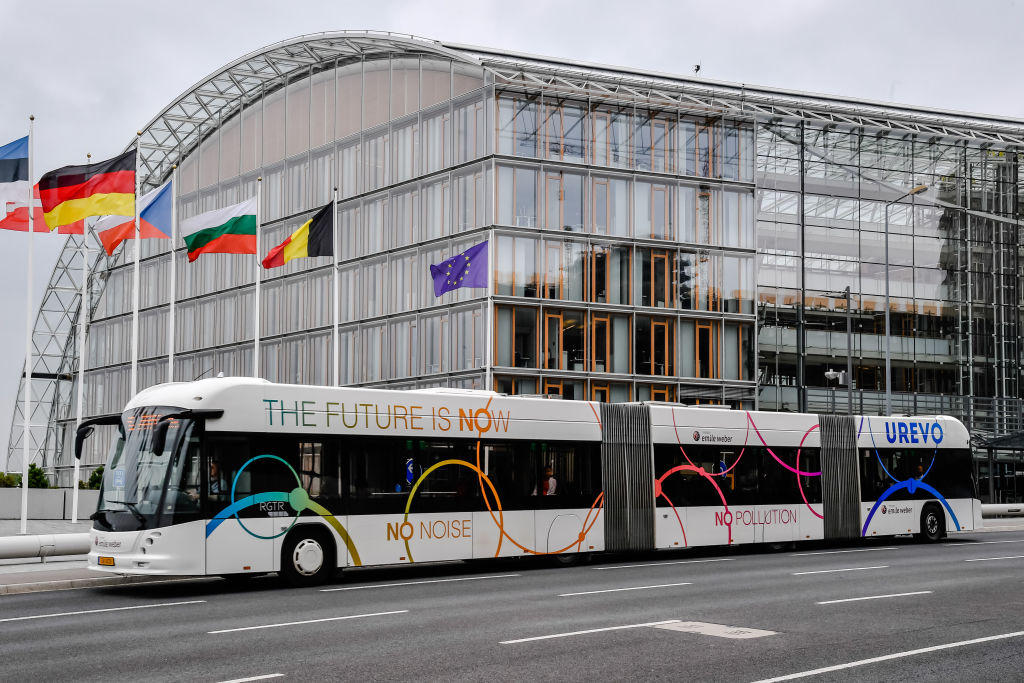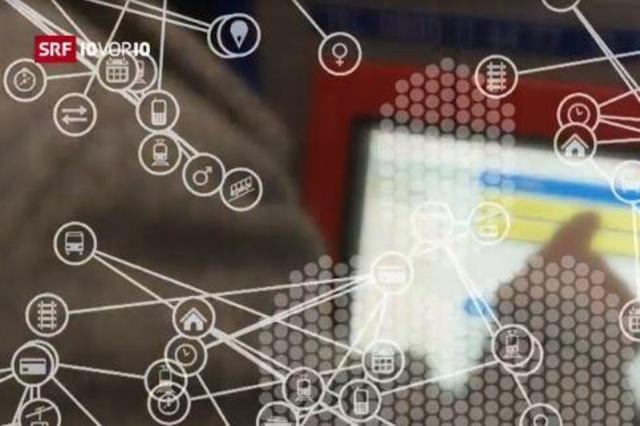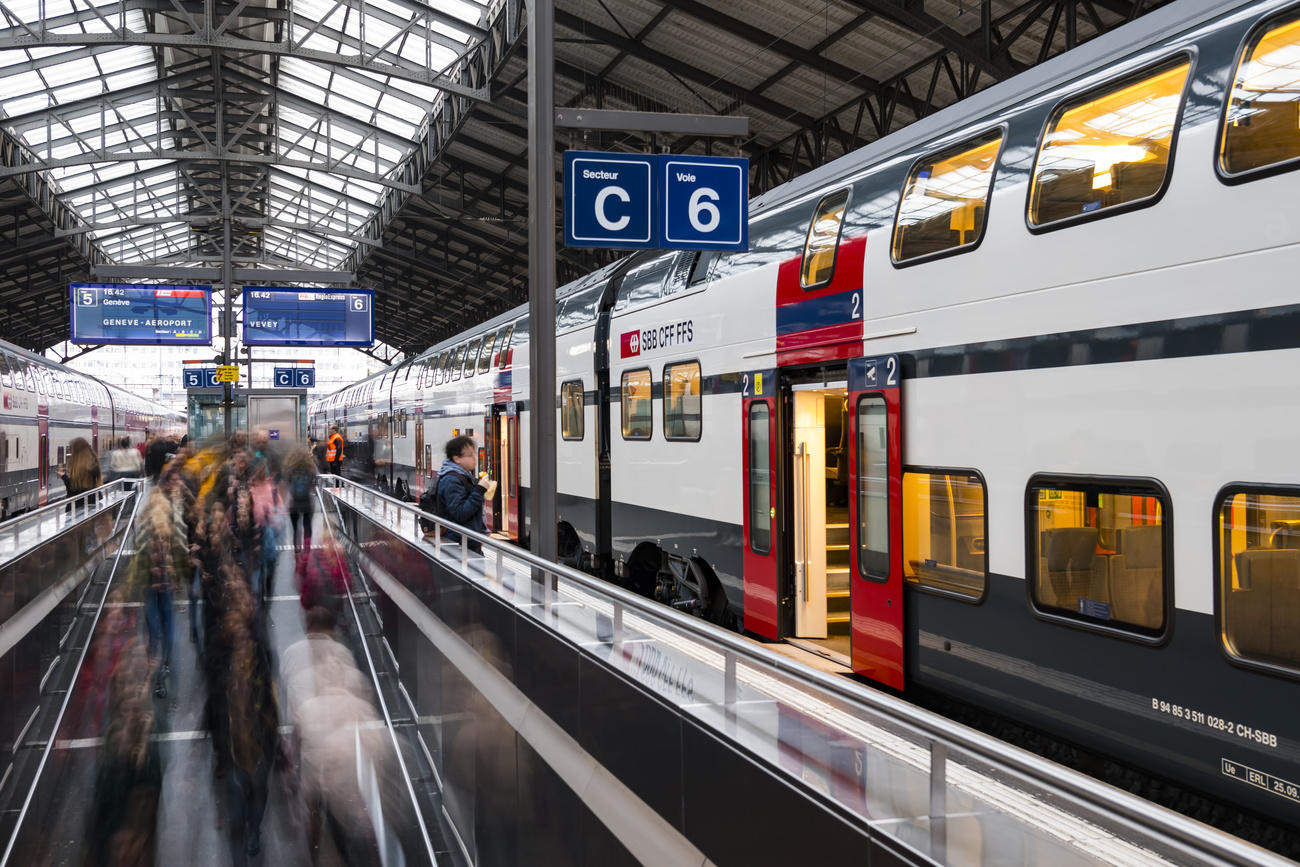Why free public transport is dead on arrival in Switzerland

Lower carbon emissions and fewer traffic jams: these are the selling points put forward by promoters of free public transportation. But just how realistic is such an idea in Switzerland?
Who wouldn’t love the freedom of hopping on and off trams and trains without having to fiddle with ticket machines or show a proof of purchase to conductors? In Luxembourg this dream becomes reality on March 1, as the country looks to cut both its notorious traffic jams and C02 emissions.
The European state is about 16 times smaller than Switzerland, and therefore hardly comparable. Nevertheless, the idea of free public transport has recently become a subject of discussion in the Alpine nation.
The best of all worlds?
Cédric Wermuth is a staunch proponent of free public transport. The Swiss politician and candidate for the co-presidency of the leftwing Social Democratic Party has a vision, as he recently told the media: “Public transport ought to be free of charge and financed through taxes.”
But Kay Axhausen, a professor of transport planning at the Swiss federal institute of technology Zurich (ETH Zurich), is sceptical.
“Let’s say it’s a resounding success and people start storming the buses,” he says. “Once they are overcrowded and unreliable, then the customers will probably be gone within two days.”
Axhausen questions whether price reductions or free public transport is really the most effective measure for achieving lower CO2 emissions. Instead he sees better and easier connection options, prioritization at traffic lights, more bus lanes and changes to the route network as possible ways to make public transport more attractive.
Free equals worthless?
The idea of free public transport is an idea from the left, yet not everyone on that political spectrum is in favour. Some are advocating for a price scale. In their opinion, public transport should cost more than travelling on foot or by bicycle. Another suggestion is to offer a national pass to young people for CHF1,000 ($1,030), an idea that is earning some public support.
“Free local transport would certainly have a positive effect on the environment, if it encourages people to switch from cars to public transport,” says Laura Schmid.
However, the project manager for transportation policy at the Transport and Environment Association says her organization is also somewhat critical of the idea.
“Because when something is free, you can consume as much as you want,” she says. “Public transport also uses up space and energy and leads to urban sprawl.”
The umbrella organization of public transport companies, which is politically independent, gives short shrift to the idea of free bus passes. In the organisation’s view, the public transportation system represents an economic advantage for Switzerland.
“[But] our position is clear – what costs nothing has no value,” says spokesperson Roger Baumann.
The role model
While there is no comprehensive list of experiments with free public transport, the example of Hasselt in Belgium is often cited. From 1997 to 2013, users rode the town’s public transport network free of charge. Over time, the number of bus lines increased from three to over 50. But ultimately, the town was unable to bear the operating costs and had to charge customers once more.
In the Estonian capital, Tallinn, local transport has been free of charge for residents since 2013 and is now seen as a model by proponents. According to media reports, ridership has increased by 14%. There are also fewer traffic jams and air quality has improved.
The newspaper Neue Zürcher Zeitung reports that Manchester, Bolton and Stockport in the United Kingdom also offer free bus rides. Free public transport is being debated in Moscow, among other places. In the French city of Dunkirk, a pilot is underway.
Most experiments, however, have failed for cost reasons. So the question is: Does the benefit justify the cost?
The city council in Bern, for example, had this response to a local initiative: free public transportation would have positive effects, but is not financially viable for the city.
“Public transport is subsidized virtually everywhere in the world,” says transport-planning expert Axhausen. By offering comparatively low prices, cities are already trying to encourage people to take the bus.
If this service had to be financed entirely from the public purse, as the social democrat Wermuth envisions, “the transport companies would lose control [over the system] and to some extent their independence from politics, because they would be completely financially dependent on it,” Axhausen adds.
Schmid at the Transport and Environment Association makes a similar point: “When you have public transport free of charge, you can no longer control the situation, for example, with a supersaver ticket [to encourage customers to travel at non-peak times]. There is a risk that the number of passengers will increase at rush hour.”
“From an environmental perspective, the key question for us is whether the [positive] effects of a move to free public transport are greater than the increase in consumption.”
Rejected proposals
Several past attempts in Switzerland to get people to approve proposals for free public transport have failed. From Basel in 1972 to Geneva in 2008 and most recently, a proposal for free bus passes for people under 25 in the St Gallen area in 2012 – all were rejected by voters.
“The idea is clearly not resonating with the public,” says Baumann of the public transport umbrella organization.
The need for free bus passes does not appear to exist in a country where public transportation is better than almost anywhere else in the world and is already heavily subsidized.

More
Should rail commuter data be monetised through advertising?
Adapted from German by Geraldine Wong Sak Hoi

In compliance with the JTI standards
More: SWI swissinfo.ch certified by the Journalism Trust Initiative












You can find an overview of ongoing debates with our journalists here . Please join us!
If you want to start a conversation about a topic raised in this article or want to report factual errors, email us at english@swissinfo.ch.